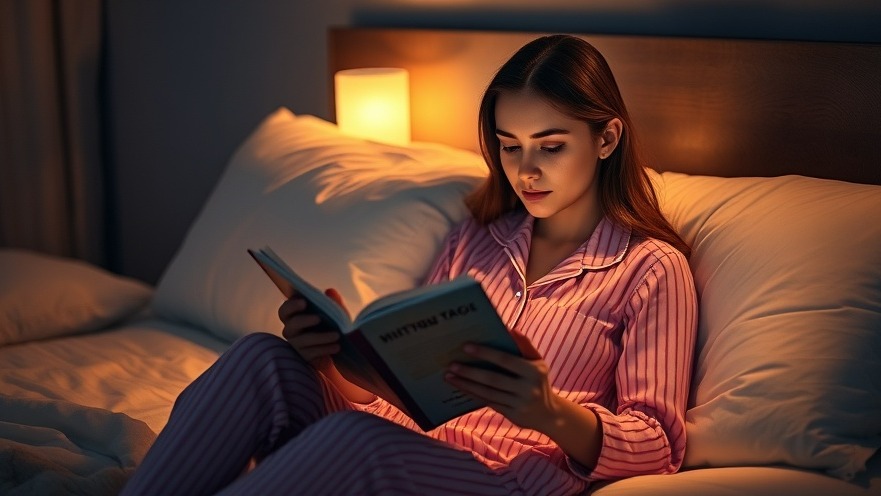
Unlocking Better Sleep: Why It Matters for Your Practice
As a concierge medical practice owner, your role extends beyond just patient consultations; you play a vital part in the overall health landscape of your community. Sleep, a significant yet often neglected pillar of wellness, directly influences mental health, physical wellness, and your patients’ quality of life. By addressing sleep habits, you not only enhance your patients' health but also position your practice as a proactive authority in their wellness journey.
The Calming Ritual: Crafting Sleep-Friendly Environments
Your patients may benefit immensely from your guidance on establishing calming bedtime routines. Encourage them to set aside at least 30-60 minutes before lights out for calming activities, such as reading or meditating. This routine is crucial for signaling their minds that it’s time to unwind. Additionally, remind them that their sleep environment should be a sanctuary; a cozy, dark, and cool bedroom can make all the difference. Recommend blackout curtains to eliminate disruptive light and consider suggesting white noise machines to drown out distracting sounds.
Natural Light: The Sunlight Equation
Exposure to natural sunlight plays a pivotal role in regulating circadian rhythms. Recommend to your patients that they step outside for at least 15-30 minutes of sunlight exposure each morning. This simple action can significantly improve their sleep quality by helping their bodies understand when it’s time to rest. For those who struggle with seasonal variations in sunlight, light therapy lamps can be an effective alternative that mimics the sun's natural effect.
Mindful Consumption: Managing Caffeine and Alcohol
As a healthcare professional, emphasizing the impact of nutrition on sleep can also improve your patients' outcomes. It’s critical to encourage them to manage caffeine and alcohol consumption, especially in the hours leading up to bedtime. You can explain that while caffeine is a well-known stimulant, many don't realize its lingering effects can last up to 8 hours. Suggest herbal teas as calming alternatives. Alcohol might seem like a sleep aid, but it can disrupt the sleep cycle, leading to poor rest.
The Impact of Digital Distractions: A Screen-Free Hour
As sleep disruptors, screens should also be part of your conversation with patients. Discussing the effects of blue light on melatonin production can help them understand why they should turn off devices an hour before bed. Recommend utilizing blue light filters or glasses when screen time is unavoidable. By framing the conversation around their health, you foster a deeper understanding of the necessary lifestyle adjustments.
Relaxation Techniques: Equip Your Patients with Tools
Finally, teaching your patients relaxation techniques can profoundly enhance their ability to fall asleep. Techniques like the 4-7-8 breathing method, guided meditations, or visualization can all lead to better sleep. Promote resources such as apps like Calm or Headspace, designed to facilitate relaxation and improve sleep quality.
A Call to Action for Change
As thought leaders in the healthcare sector, it is essential for concierge medical practice owners to incorporate these sleep-enhancing strategies into patient care. Not only will this contribute to a stronger health focus within your practice, but it will also empower your patients to reclaim their sleep and their well-being. Start integrating these discussions into your patient interactions today and watch as your practice flourishes.
 Add Row
Add Row  Add
Add 




Write A Comment